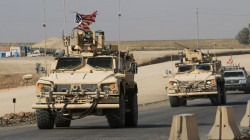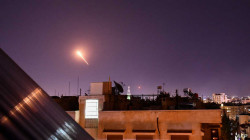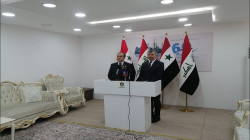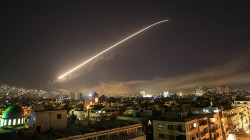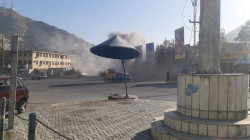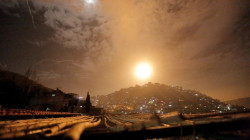After years of war, devastating earthquake mends fences betweeen the Gulf and Damascus
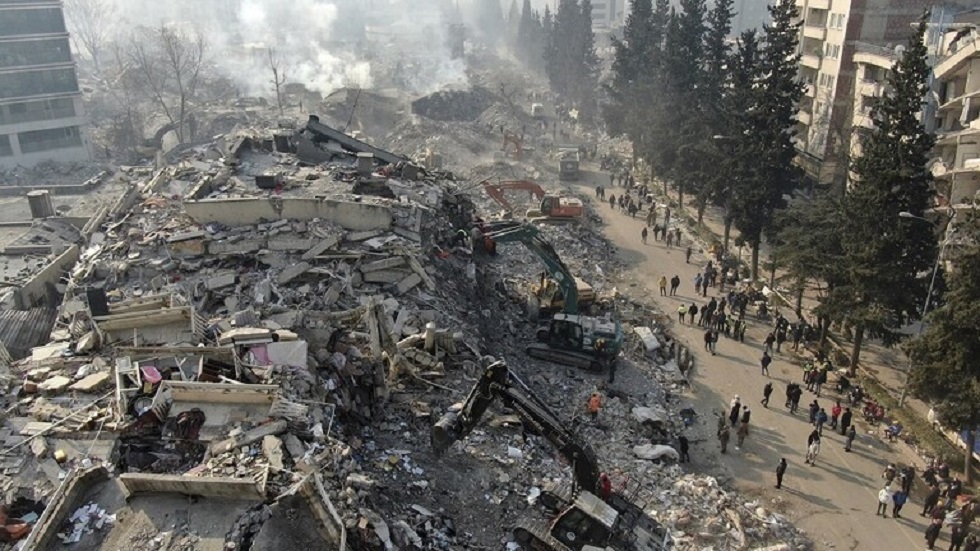
Shafaq News / The temporal span from February 2012 to February 2023 can be described as a considerable duration, replete with several notable developments.
One of which was easing the boycott on Damascus by the Gulf Cooperation Council (G.C.C.) member states, whose Secretary-General, Abdul Latif al-Zayani, announce closing their embassies in the Syrian capital in an act of protest against the “brutality and oppression” the Syrian regime exercised on its people.
This political move had far-reaching implications, as it coincided with Syria's suspension from the Arab League, despite being one of its founding members. However, the supposed humanitarian pretext underlying the Gulf's decision was swiftly dispelled by the subsequent events, which exposed the organized financial support extended to various armed factions and parties by some of the G.C.C. member states. This sponsorship undoubtedly facilitated the continuation of civil unrest and allowed for the infiltration of jihadist elements from other nations into the ranks of the armed groups.
The fallout from this decision by the Gulf states further extended to the region's geopolitical landscape. Israel intensified its attacks on Syrian territory, Turkey established a permanent military presence in the north, and Iran threw its support behind President Bashar al-Assad's regime. This development marked a shift in Iran's strategic thinking, as it considered Syria to be vital to its core interests, forming an essential part of its "axis of resistance."
The Gulf's decision also created a power vacuum that extremist groups were quick to exploit, leading to the emergence of organizations like ISIS, which designated Raqqa as the center of its so-called caliphate. Observers noted that the Gulf's involvement in the conflict, which took the form of arming and financing the most powerful factions, contributed to the rise of more radical groups. This development was further exacerbated by the presence of al-Qaeda and other terrorist groups that had established bases in Syria.
The conflict also became an arena of geopolitical confrontation between Russia and the United States, with both countries establishing military bases in Syria. This competition gave rise to a renewed "cold war" between the two global powers, with their respective allies joining the fray. Lebanese and Iraqi factions joined the fight in support of the Syrian regime.
On the other hand, some observers argue that the Gulf's decision to withdraw from Syria weakened the country to the extent that it contributed to the ongoing humanitarian crisis. More than half a million people have lost their lives, while eight million others have been displaced both internally and externally.
Former Qatari Foreign Minister Hamad bin Jassim bin Jabr acknowledged the Gulf's involvement in the Syrian conflict, stating that Doha and Riyadh shared a role in funding and supporting factions seeking to topple the regime. Had it not been for the disagreements between these two Gulf powers, this objective might have been realized.
Given this context, it is critical to monitor the ongoing Gulf reconciliation process, particularly as it shifts towards the provision of humanitarian aid after the Turkish-Syrian earthquake, which claimed the lives of tens of thousands.
U.A.E
In the early stages of the Syrian conflict, which began in 2011 and continued until the beginning of 2012, the U.A.E. maintained a relatively moderate stance compared to its Gulf neighbors, Qatar and Saudi Arabia. Rather than advocating for aggressive measures, Abu Dhabi firmly supported the joint stance of the G.C.C. and the Arab League, which prioritized diplomacy, nonviolence, and de-escalation. The U.A.E. cautiously avoided internationalizing the crisis and steered clear of using force as a solution.
However, as tensions between Gulf states and Damascus intensified, the U.A.E. proposed a freeze on Syria's membership in the Arab Inter-Parliamentary Union on March 6, 2012. Then, on March 16 of the same year, Dubai police chief Dhahi Khalfan warned of the rise of the Muslim Brotherhood Organization and the fall of Syria.
At the end of 2017, the U.A.E. collaborated with the U.S. to provide the Syrian Democratic Forces (S.D.F.) with money, logistical support, experience, and intelligence support. Some speculated that the intended target was Ankara rather than Damascus. Anwar Gargash, the U.A.E.'s former Minister of State for Foreign Affairs, confirmed in an exclusive interview with the American channel "al-Hurra" that his country supports the Syrian Kurds in their fight against Turkey and opposes the creation of a safe zone that the Turks sought to establish in northern Syria.
In 2018, the U.A.E. reopened its embassies in Damascus, and officials from both nations began making statements and meeting. In 2020, the then-crown prince of Abu Dhabi, Mohammed bin Zayed Al Nahyan, and al-Assad had a phone call during which they discussed Abu Dhabi's willingness to support Syria during the COVID-19 pandemic.
The year 2021 saw the U.A.E. Foreign Minister, Abdullah bin Zayed Al Nahyan, visit Damascus, followed by al-Assad's visit to the U.A.E. in 2022. This was al-Assad's first Arab visit since 2011. The U.A.E. also offered humanitarian assistance to the Syrian people, with their assistance reaching the most significant number of planes that flew to Damascus, Aleppo, and Latakia out of all the countries that provided aid.
Many factors have been cited as contributing to the U.A.E.'s renewed contact with Damascus, including al-Assad's relative stability in controlling most of the territory, the containment of the terrorist threat, and the constant fear of political Islam's expansion in the Arab Gulf if Damascus falls. The rise of Turkish influence in the region through collaboration with Qatar is another concern.
K.S.A.
In the early stages of the Syrian conflict, K.S.A.'s position was more extreme than that of the U.A.E. and Qatar. In 2012, Saudi King Abdullah Bin Abdulaziz Al Saud cut all ties with Syria, stating that there was no point in pursuing a dialogue with al-Assad. Additionally, K.S.A. called for arming the opposition through former Foreign Minister Prince Saud al-Faisal, which was discussed during the U.S.-Gulf Strategic Forum.
K.S.A. has also committed to supporting armed factions, including the "Army of Islam" in the Damascus countryside, and through the MOC room in northern Jordan, which supports armed factions in southern Syria. It was reported that Prince Salman bin Sultan, the nephew of King Abdullah, oversaw the MOC room.
As the Syrian state recovered control on the ground, albeit more slowly than the U.A.E., the relations between Riyadh and Damascus have started to shift in recent years. The National Security Office chief, Maj. Gen. Ali Mamlouk, and the head of Saudi intelligence, Maj. Gen. Khaled al-Humaidan, met in Damascus in 2021 to discuss methods to achieve normalization of relations between the two nations. In November of the same year, the director of Syria's General Intelligence Directorate, Maj. Gen. Hussam Louka, met with Saudi intelligence chief Khaled al-Humaidan during the Arab Intelligence Forum in Cairo.
Following the earthquake in Syria, the first Saudi plane carrying aid for the victims landed at Aleppo International Airport. Saudi Foreign Minister Faisal bin Farhan addressed the refugee crisis and the earthquake disaster in dialogue with Damascus during the Munich Security Conference. However, observers noted that K.S.A.'s primary motive in attempting to thwart Iranian influence is the Iranian presence in Syria.
Qatar
Qatar has remained one of the most assertive Gulf and Arab nations in their opposition to the Syrian situation and its re-admission to the Arab League. Since July 2011, Doha has closed its embassy in Damascus, with the then-emir, Sheikh Hamad bin Khalifa, lobbying for the deployment of Arab troops as a replacement for foreign intervention. This approach, which proved successful in Libya, aimed to facilitate the delivery of aid, establish safe zones, and monitor the ceasefire in January 2012.
In February of the same year, Sheikh Hamad bin Jassim appealed to the international community to expedite the provision of support and shelter for the Syrian opposition. The UK's newspaper "The Times" reported that "al-Nusra Front," an offshoot of "al-Qaeda" in Syria, received funding from Qatar through a range of channels, including banks, businesses, and charitable organizations.
Despite Turkey, Qatar's main regional ally, taking steps to initiate discussions with Damascus through Russian-sponsored meetings between security officials, Doha refrained from extending aid to those affected by the earthquake in areas under the control of the Syrian state.
Oman
In contrast to the more interventionist G.C.C. states, Muscat has taken a distinct approach to the Syrian conflict. Rather than advocating for the overthrow of the Syrian regime or directly arming opposition forces, Oman has remained committed to a policy of balance and neutrality, abstaining from interfering in the internal affairs of other countries.
This stance has been exemplified by Oman's diplomatic engagements with the Syrian government. In October 2020, the Syrian Foreign Minister, the late Waleed al-Muallem, accepted the credentials of Oman's ambassador to Syria, Turki bin Mahmoud al-Busaidi, who had previously visited Damascus in 2015.
Recently, President Bashar al-Assad traveled to Oman to meet with Sultan Haitham bin Tariq to discuss the possibility of Muscat becoming a diplomatic and strategic ally for Syria among other Gulf states. Additionally, Oman may also emerge as a potential location for investments in Syria's post-war reconstruction efforts, pending political stability in the country.
Kuwait
In February 2012, Kuwait severed all ties with Syria, and while some Gulf nations have since reopened their embassies, Kuwait continues to hold the Arab League responsible for the closure of its embassy. Kuwait maintains that if the Arab League decides to normalize relations with Damascus and allow Arab nations to open embassies there, Kuwait will comply with such a decision. At the recent Munich Security Conference, the Kuwaiti Foreign Minister, Salem al-Abdullah, emphasized that Kuwait has no intention of resuming diplomatic relations with the Syrian government, unlike other Arab nations that have done so.
Despite the official break in communication between Kuwait and Damascus, various Islamist, Salafi, and Muslim Brotherhood leaders and organizations have continued to communicate with the northern parts of Syria controlled by armed groups. They have established multiple refugee camps in the countryside of Idlib and Aleppo, and through several charitable organizations associated with the Kuwaiti Ministry of Labor and Social Affairs, built numerous schools and mosques.
Bahrain
The Kingdom of Bahrain, after a decade of severed ties with Syria, has taken a step towards reconciliation by announcing the appointment of its first ambassador to Damascus in December 2021. Following in the footsteps of the United Arab Emirates and Oman, King Hamad bin Isa Al Khalifa issued a decree naming Ambassador Waheed Mubarak Sayyar as the head of the Kingdom's diplomatic mission in Syria, signaling a potential thaw in relations.
Despite the potential for improved relations, the restoration of ties between Syria and Gulf states has been impeded by various factors, including pressure from the United States and the "Caesar Act" sanctions, domestic political considerations, and broader regional dynamics. However, it is possible that the recent earthquake has opened up channels for communication and cooperation between Syria and the Gulf.
In the aftermath of the earthquake, the King of Bahrain spoke with President al-Assad, reaffirming Bahrain's support for Syria and its people during these dire times. While the full effects of this event remain to be seen, it has already had an impact on the Arab world, with Moaz al-Khatib -a member of the Syrian opposition who was allowed to occupy Syria's official seat at the Arab summit in Doha on March 26, 2013- signaling a potential shift in the political landscape of the region.
Exclusive to Shafaq News agency.
